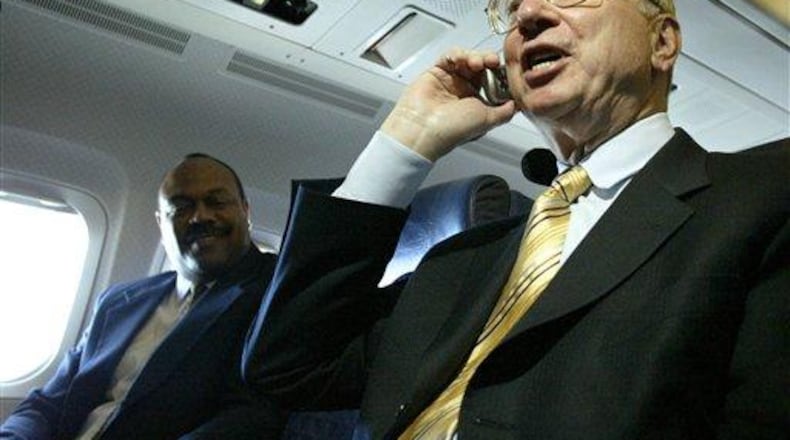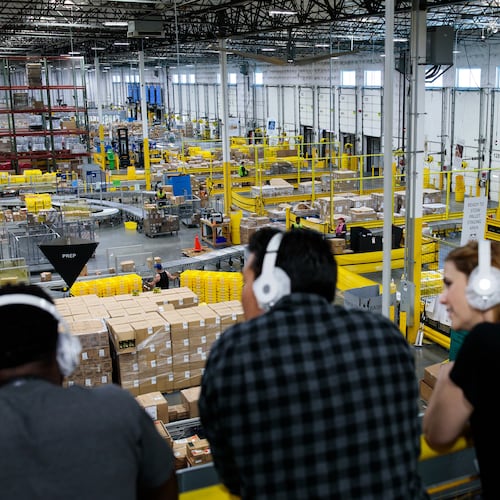Thousands of comments submitted to the federal government on whether voice calls should be allowed on flights make it clear: Many people worry it would be a major, unavoidable annoyance. But flight crews say there's an even bigger potential problem.
That became more evident when U.S. Department of Transportation took comments on the issue as part of a proposal to require airlines to notify passengers in advance if calls are allowed on their flights.
Currently, Federal Communications Commission rules ban regular cell phone calls because of the risk of radio frequency interference. But that prohibition doesn't cover wi-fi-enabled calls. Some believe the question of whether to allow such calls on flights should be left to airlines, rather than decided by the government.
But the comments from flight attendant and pilot unions made it clear that beyond just the annoyance factor, there is another key concern that they have: safety.
Allowing voice calls on flights "would increase cabin noise levels, making it difficult for flight attendants to communicate important safety announcements to passengers," the International Association of Machinists union, which represents airline workers including flight attendants, said in its comments. "In emergency situations especially, passengers distracted by phone conversations, both of their own and those of their fellow passengers, may miss critical directions and instructions."
The machinists union added: "It is a certainty that flight attendants will have to de-escalate cabin situations due to hostility between passengers emanating from inflight voice calls. This is an avoidable distraction. Flight attendants already have the difficult and great responsibility of ensuring the safety and security of the flying public."
Delta pilot and president of the Air Line Pilots Association union Tim Canoll explained it from the cockpit's perspective during a briefing this week.
"We believe it is a degradation of safety to allow this," Canoll said. "We never know when the problem's going to come. It could happen just as you're backing off the gate. It could happen three hours into a 12-hour flight. There could be something that needs immediate attention."
"And therefore, there should be one venue where the flight attendant picks up the P.A. and she knows that's the only thing -- no one is competing for her attention," Canoll said. "If you notice the in-flight entertainment systems -- they freeze when the P.A. goes, because we need you to listen to that."
And the Association of Flight Attendants union made similar points in earlier comments, that allowing calls during flights could also "compromise a flight attendant's ability to maintain order in an emergency" and "interfere with crewmembers in the performance of their duties as first responders in the cabin."
What's more, the machinists union said it is concerned that terrorists "could use the new capability to communicate with each other in real time about the movement or vulnerability of crewmembers or to more easily launch a coordinated attack," the machinists union commented.
The Association of Flight Attendants also said it believes that allowing voice calls "in an environment where terrorists will be able to blend in with ordinary passengers... will inevitably increase safety and security risks."
MORE:
Should voice calls be allowed on flights?
About the Author
Keep Reading
The Latest
Featured




